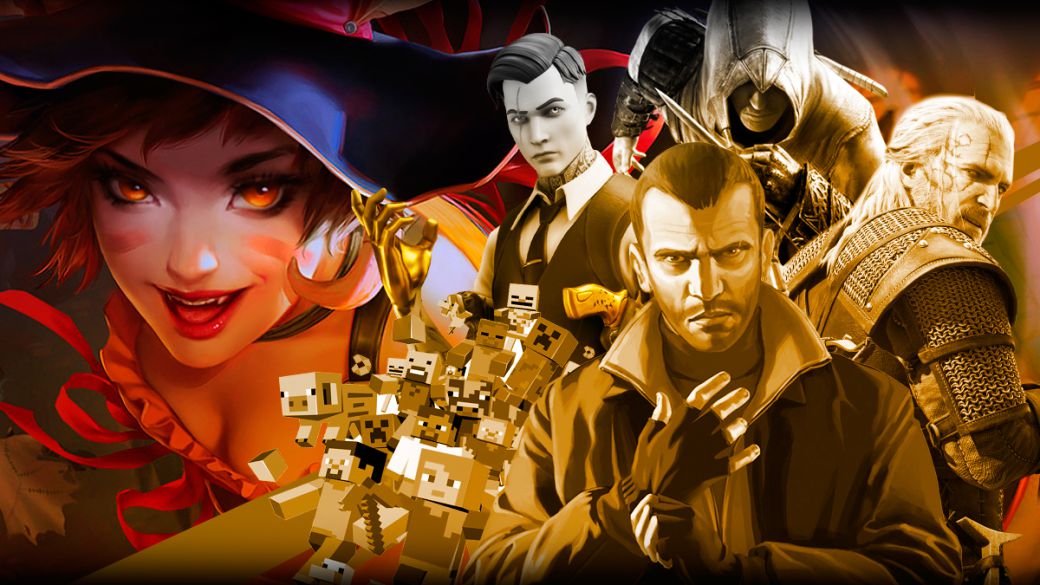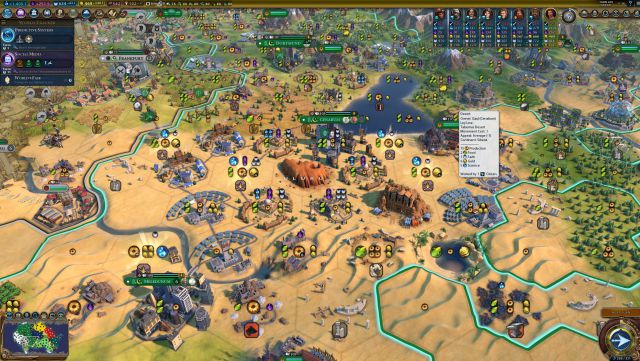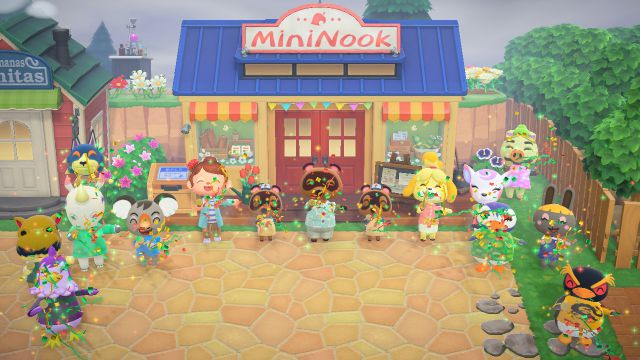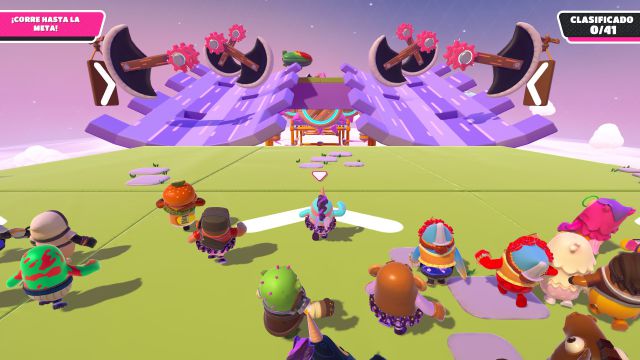
Every game is designed to be addictive and to attract attention above any other, but what are the factors that make it addictive?
Whether due to different tastes, all games tend to be fun, sometimes even too fun. As with any addiction, addiction to video games or “games” is often a multifaceted problem. To begin with, video games are designed to be addictive, but not the adjective “addictive” clinically speaking, but game designers always tend to create certain ways so that their games are much more interesting than others and, of this way, increase the amount of time people spend playing on it. In the following report we will not count addiction as a disorder or a disease, but we will explain and try to answer one of the questions that surely has never crossed your mind, but now that you are reading it, you are interested in knowing: What is it? What makes a game addictive? We will review some factors along with the reasons for that addiction, also what is the genre that manages to cause the most addiction, in addition to taking into account the future that awaits us with video games.

How to manufacture the addiction to the game?
If we want to focus on figures, more than 2 billion people play video games around the world, a figure that is extremely large, making the video game market increase, becoming one of the industries with the highest sales and profits. in 2020. The average gamer usually plays around 6 hours a week, but most gamers of all ages find playing video games a fun hobby – a way to relax, connect with friends, and enjoy a challenge . It is very likely that you know people who gamble regularly, but few of them would accept the fact that they are playing too often, possibly because they are considered “addicted”, but if so, how to manufacture this type of addiction ?
One of the most essential characteristics of video games is to ask the player for more and that he wants even more, that is, to expose a series of circumstances to make the game much more attractive and not boring. Here are some of them:
- The winner’s paradox: When we talk about the paradox, we want to imply that intention to maintain an abnormally high percentage of victories, since this is much more satisfactory for the player and would encourage him to continue playing to maintain this gratification.
- Reward VS Punishment: Players like to find gold coins for whatever reason. This is considered a reward that relates to the result of a merit within a game. If it is punished too soon, the players may come to think that it is cheating or boring. It comes to the conclusion and theory that the first 50 minutes of a game have to be really great, making an “easy” and correct way, so that they are located and become familiar with the gameplay, and later that different things start to happen. twists in history.
- Levels of progressive difficulty: We are not referring to the difficulty of the game, but to those internal levels that are aggravated with our progress. In theory it is necessary to have levels of difficulty, why? Simple, because these create a feeling of progress and it is always necessary that there be more challenges. In addition, the desire to move to the next level improves playability, as you want your player to feel that they are above average.
- Build a great atmosphere and / or style: Creating an essential atmosphere in a video game can pay off well to keep the player going. A good soundtrack that is consistent with the graphics will help the player to constantly keep him in your world.

Factors that increase addiction
As we mentioned at the beginning, game developers look for different ways to make their game cause a sensation and get the player caught. This does not mean that game developers harbor the malicious intention of hooking a new generation of young people to video games. But what starts out as an immersive escape can, for some, go from a harmless form of entertainment to a more consuming addiction. Games that get players hooked are often designed to be difficult enough to be truly challenging, while also allowing players to make small achievements or some winnings that force them to keep playing. Hence the design and manufacture of this addiction that we talked about in the previous section. There are several factors that can achieve this addiction, we present some below:
The highest score
Whether your latest game is the latest edition of Grand Theft Auto or you haven’t played a game since Pac-Man, you’ll know that the highest score or completion percentage is one of the easiest hooks to recognize. You will always want to try to beat the highest score, even wanting to beat your own score, and this can keep a gamer engrossed for hours and hours in the game.

Beating your rival
The number of players who compete with or against friends and other players from all over the world over the Internet is increasing, and it is that every day that passes there are more competitive online games. Some games involve the formation of clans to compete against other players, while others use the “battle royale” format to find out who manages to survive, as with the famous Fortnite. The goal here may be to move up the leaderboard or to earn bragging rights to friends. Add to this the need to establish social connections, since these tend to increase and continue to be promoted as a way to cause more sensation.
In-game improvement
This “hook” is not used in online role-playing games, but is found in almost all game systems. When starting a new video game, the character begins with very basic attributes in terms of experience, strength, intelligence, courage, powers, etc. Initially it takes very little playing time (maybe minutes) to reach the next level and acquire new skills. This is immediately gratifying and reinforces continued play. However, each successive level begins to take longer playing time to reach, which eventually takes days or weeks to level up. At this time, the player has gradually adapted and accepted the increased effort required to reach the next level. We can find this in sagas like The Witcher or Assassin’s Creed, where we finally want our character to reach the maximum level and continue to surpass ourselves in the game by doing dozens and dozens of missions.

Role playing games
Role-playing games allow players to do more than just play – they can actually create the game’s characters and embark on an adventure that is somewhat unique to that character. It should be noted that character customization has been increasing and is no longer only seen in the role-playing genre. This is basically done with a very simple intention: to create emotional attachment to the character and the story and, in this way, make it much more difficult to stop playing.
The discovery
The exploration or discovery tactic is most often used in role-playing games as well. In this case we can see it more clearly in the most popular online game of all time: World of Warcraft, which we will talk about later. The thrill of discovering, discovering an open world where you feel free to move back and forth as you please, draws a lot of attention and can be extremely compelling. It also happens in other games like Skyrim or Minecraft.
Rich in stories
Most games, like movies, have a plot, missions and a story that is very good. In addition, to incorporate different endings based on the choice that the player makes. Now think about it, wouldn’t it be great to see a really good movie, control the story, and help it achieve the ending you want? In the end this can lead to great success.
Relaxation
There are real-time strategy games and some platform games, which are quite slow, with repetitive activities and a gameplay that does not dispense with great attention. These games are a great way to de-stress and relax after a hard day at work.

These are some of the main factors that can cause a game to become addictive, but it is clear that addiction affects each person in a totally different way. Games may be primitive, but they also manage to turn heads, particularly as they are often found on phones and pre-installed computers, allowing people to play anywhere, anytime. In the end, a game is a form of entertainment, such as watching football, movies, reading books, listening to music … etc. There is nothing in games that distinguishes it from the other part of entertainment, but it is true that people tend to get attached to this form of distraction due to some of the factors that we have explained previously. However, there continue to be more reasons that cause a game to get more attention and / or addiction than we are talking about.
More reasons to create addiction
If we can relate all the ideas and concepts that we have obtained with the previous factors, we can come to the conclusion of several reasons that also make a game become addictive. In the end addiction is like a chain of events: first you are drawn to the fantasy setting, then you want to make your character stronger, better equipped and better than the others, then you start using the game as a stress escape from the real world and he can finally get you caught so you stay in it for hours. For example, one of the reasons that a game can become addictive is the rewards that are often established at variable times. Being aware of schedules or playing a game in real time makes you be much more attentive than it will be and how your gameplay will vary within it. As well as that a player can be rewarded based on how many tasks they have completed and how much time they have spent on it, that is, the player will never really know how long it will be before the big reward arrives, but if they play long enough it will eventually arrive. This type of rewards program encourages longer periods of play.

More reasons that undoubtedly cause a game to attract attention is caused by their own companies. They regularly release updates or expansion packs that cause the user to be on the lookout. Also, if players start to get bored of online worlds, expansion packs add new areas to explore, new skills to try, new tasks to complete, and new characters to develop. Finally, another of the reasons that are also created by companies are those video games that require monthly fees. The latter causes the player, having paid his fee, to encourage him to play more so that the payment is “worth”.
The most addictive video games
Ranking the most addictive video games is quite subjective. We can speak from those incredibly complex massive multiplayer online role-playing games (MMORPGs) to simple and repetitive mobile games like Candy Crush that have captivated many users, or even those relics like Tetris or Pac-Man that showed that simplicity does not prevent a game from being addictive. In this MMORPG category, two games emerged in the early 2000s and became known for their immersive popularity: World of Warcraft and Everquest. Many millions of players enjoyed these games and they got to be quite addictive. Today, World of Warcraft has tens of millions of registered players around the world, mixing fantasy, fighting, co-op or solo play. In addition, it is one of the video games that is maintained with monthly payments and manages to encourage its users to reach their maximum level and even to try several characters for their different roles and weapons. Something similar happens with video games considered MOBA such as League of Legends or DOTA 2, which host millions of daily users, with the difference that they are free with some micro-payments.

Around the same time, other popular multiplayer games played online through a console such as the PlayStation or Xbox came to light. This was the case with Halo 3 in 2007, it became very addicting and lovers of this game pointed out that thanks to its graphics and innovative sound, it seemed that they were starring in their own movie. In the end, a video game has a cap, a maximum or final level that is considered finished, but that in online multiplayer does not happen because the variations are endless and the replayability is undoubtedly the hook to enjoy the video game much more. What was once a very individual endeavor, now a good number of players opt for titles that largely revolve around competing with other players, this is the popularity of Fortnite or the online version of GTA V. This is largely due to part of the fun and unpredictable nature of pitting our skills against other players, as well as being able to communicate in real time with rivals through specialized headphones. It should be noted that the co-founder of Epic Games himself has denied that Fortnite is an addictive game, so in the end it ends up being a quite personal opinion.
Minecraft would be another great example as an addictive video game. After 10 years since its launch, it currently maintains more than 100 million monthly users, with different updates, derivatives and with one of the largest open worlds that exist. However, the factor that is causing the most attention to a game is the well-known “Squad”, this means that when we have a decent number of friends to form a team, we will continue to return to the game, since the jokes and the Social interaction will pay off. Currently we have different clear examples of this last factor, as we have seen with Fall Guys, Among Us, Phasmophobia or even more recently with RUST.

A look to the future
No one can predict with a high level of certainty what the future holds for video games, much less addiction to them. While virtual reality (VR) games have enjoyed media saturation in recent years, we’ve seen supposedly revolutionary technologies come and go in the past without having the kind of impact that was predicted in their early stages. Meanwhile there have also been sales figures that have been increasing for other cases of virtual reality, as it was with Oculus, Sony and HTC. However, certain trends can be observed such as some innovative mechanics, soundtracks, graphics and narration that have been experiencing a fairly gradual improvement over the years and that continue to reach new heights as has happened with titles like Red Dead Redemption 2 So it is reasonable to predict that developers will continue to invest large sums of money to improve the development of their own games.

Live streaming has also become a formidable part of the gaming industry in its own right. Platforms like Twitch, acquired by Amazon in 2014, attract a daily audience of more than 20 million users. Many gamers spend hours watching others play without having to lift the controller themselves. There have also been large companies that have wanted to immerse themselves in the world of games such as Google with Stadia. A platform that combines elements of cloud computing and social sharing to offer a new and innovative way to play. By offloading most of the processing required to handle sophisticated games to cloud servers, Stadia enables gamers to enjoy high-end experiences on less powerful devices.
Currently, there are a multitude of gaming platforms available for users with a variety of prices and easy access, as well as offering very attractive experiences. These trends can generate much more addiction to video games and a way to attract more fans to this industry. In short, the immersion and sophistication of video games continue to reach new goals and for many players everything that a video game offers is decisive, what you can achieve within it, who you can become, up to what level to reach and what fantasy world you can immerse yourself.
Sources: Vator.tv | Video-game-addiction.org | Techaddiction.ca | Quora.com
